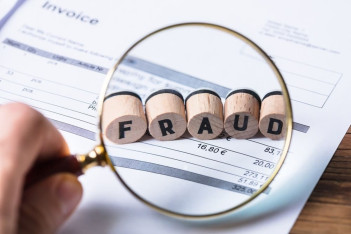Prepare for external corporate audit in the US
Preparing for an external corporate audit involves comprehensive legal actions to ensure full compliance of internal documentation, corporate processes, and reporting with US auditing standards. For businesses, this is not just a requirement from investors or regulators, but also a key part of audit preparation meaning, helping to protect reputation and reduce financial and legal risks. Understanding how to prepare for an external audit is essential to ensure that all departments meet compliance expectations and operate transparently - and we will help with this!
What legal preparation for an external audit includes?
Legal support covers:
- Corporate structure audit (incorporation documents, registrations, certificates). This forms the first stage in any external audit checklist, setting the foundation for risk-free verification;
- Compliance review of internal policies (e.g., compliance policies, risk management). Knowing how to prepare audit checklist also helps ensure company is ready for both internal and external checks;
- Contract analysis (with clients, suppliers, investors);
- Assessment of corporate governance and board composition compliance in line with best practices and external auditor evaluation checklist criteria;
- Review of information disclosures to regulatory bodies and investors, a key step within any external audit preparation checklist;
- Preparation for external auditor inquiries — creating a tailored audit prep checklist that addresses documentation gaps and demonstrates transparency.
The result is a report identifying risks, recommendations for addressing violations, and readiness for audit without legal consequences.
Why legal support is crucial before external audit?
It's not enough to simply know how to prepare for audit, you need to understand the nuances of this process. Legal pre-audit review helps:
- Avoid penalties and legal disputes;
- Reduce risk of negative audit opinion;
- Prepare documents in accordance with GAAP, SEC or PCAOB standards, ensuring alignment with external audit best practices;
- Prevent loss of investor or partner trust;
- Protect company interests if controversial matters arise.
In addition, understanding why are external auditors important helps management better communicate and respond to requests. Proper legal guidance clarifies how to prepare audit checklist effectively.
When should an audit be conducted?
Support is provided to companies when:
- Preparing for IPO, merger or investment round;
- Undergoing mandatory SEC or IRS audit, the lawyer will explain how to prepare for an IRS audit;
- Conducting voluntary audit per investor or board request;
- Seeking to verify compliance with financial transparency standards, in this case, the specialist explains how to prepare for an internal audit.
Legal support is particularly valuable for startups, venture firms, and corporations with complex control systems that need clear internal audit preparation checklist to maintain efficiency.
ConclusionPreparing for an external audit is an process of compliance, documentation accuracy, and operational discipline. Our legal team assists in analyzing contracts and policies to helping understand how much should an audit cost and what to prepare for. With external audit process steps, you’ll not only pass verification successfully but also enhance transparency, investor confidence, and long-term corporate stability.


































